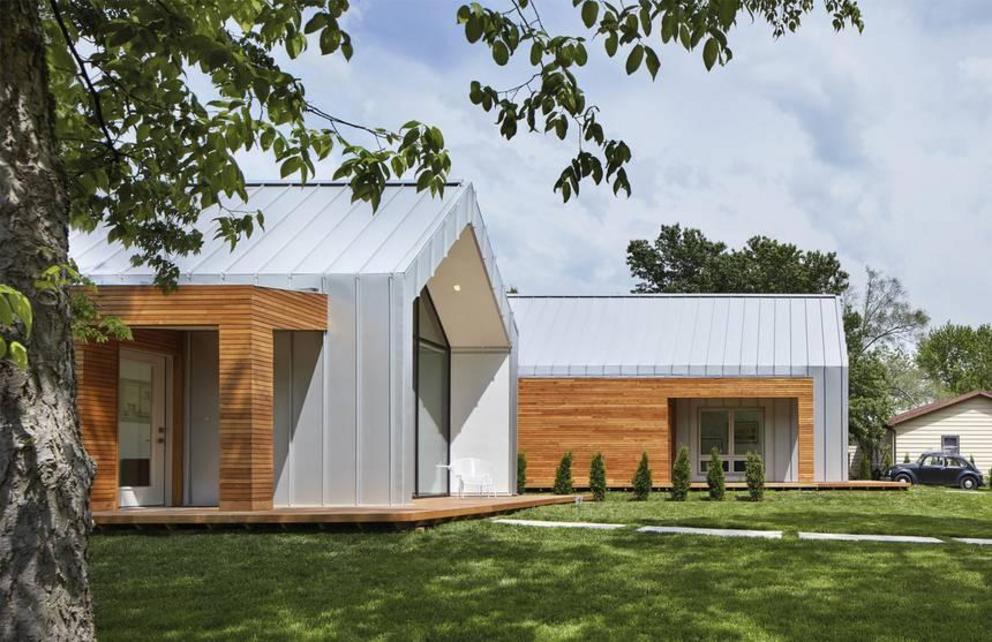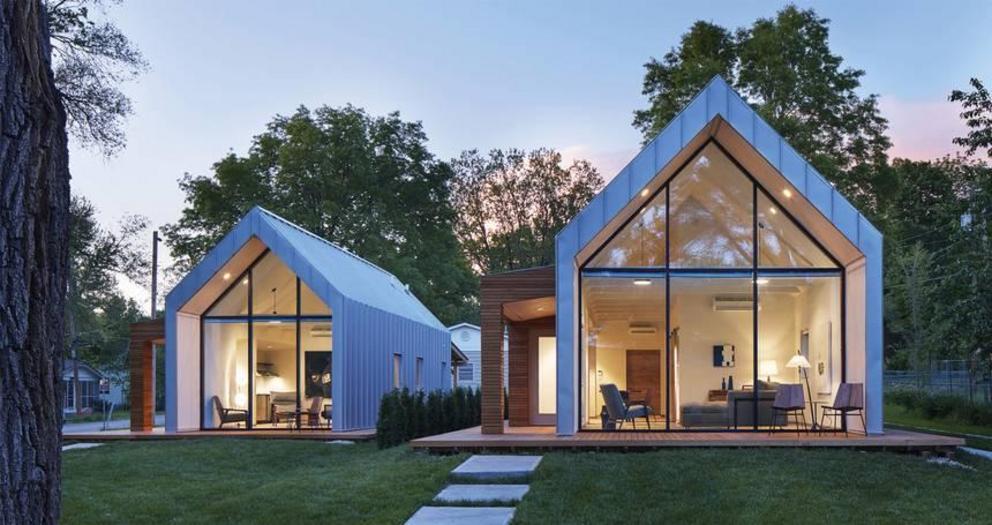Studio 804 creates smaller houses for a changing market
Dan Rockhill and his students keep pushing the building envelope.
I have long been a fan of Dan Rockhill and Studio 804 at the University of Kansas School of Architecture, Design & Planning. According to their website, "It is a not-for-profit 501(c)3 corporation committed to the continued research and development of sustainable, affordable, and inventive architectural solutions. The students not only work on the design of a building but are on site everyday physically building it and learning how their ideas become real."
But it is a lot more than that. Studio 804 designs LEED Platinum houses that "are exceptionally air tight, highly insulated and use a highly efficient mechanical system to assure a healthy and comfortable interior environment. The materials are all chosen to avoid the unnecessary use of resources and do not emit toxins by off gassing. All the appliances and fixtures are Energy Star rated. The windows and doors are high performance. The roofing is a highly reflective metal that reduces heat absorption and is recyclable."
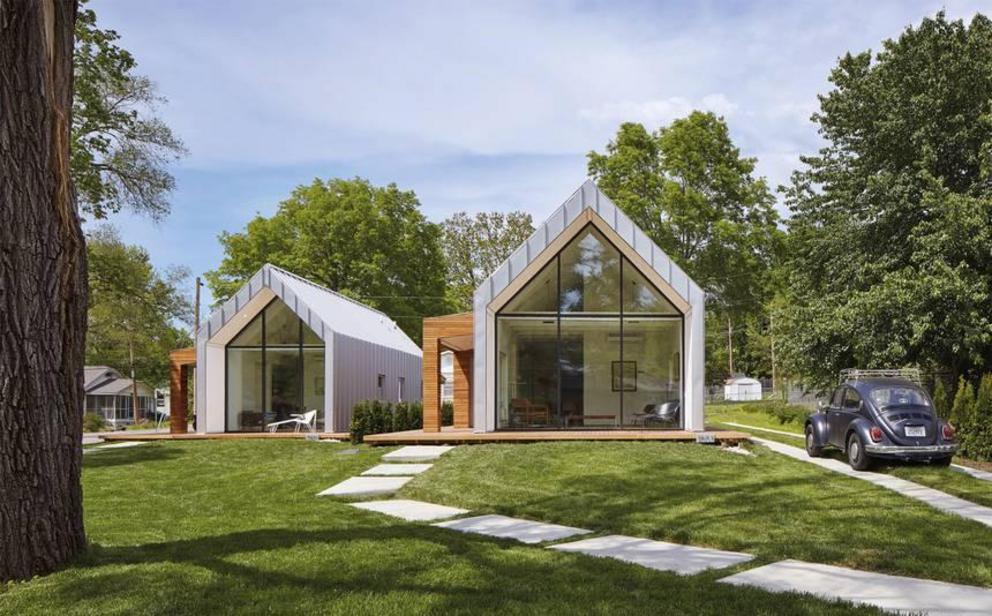
Their latest, the Houses on Oak Hill Avenue, are typical of the work that they do: Simple, elegant designs. But what is different here is the planning; these are small houses, designed for a different market.
Successful sustainable design requires analyzing and planning for local economic and demographic trends. In recent years, both Lawrence, Kansas and Studio 804 have recognized that while the county’s population is growing at a high rate the average household size is dwindling. Comprehensive Lawrence planning documents have anticipated these problems by projecting population growth.
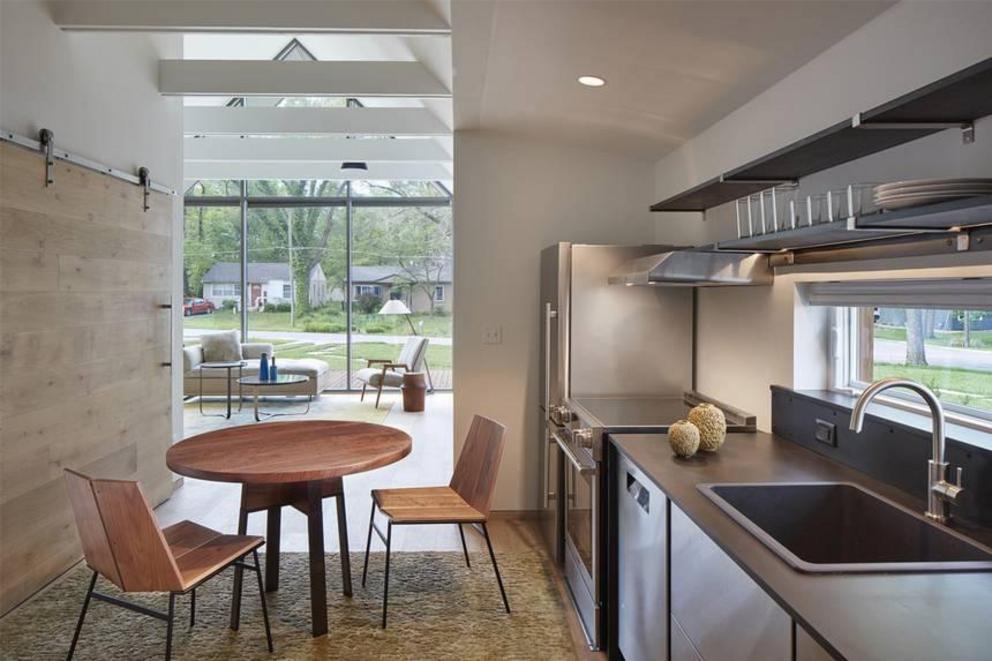 Kitchen in unit 1501, no bed in sight
Kitchen in unit 1501, no bed in sight
As Lawrence wants to avoid outward sprawl, groups such as the nonprofit Community Housing Trust have put forward creative solutions for this county-wide issue. They suggest creating “affordable housing by dividing lots in existing neighborhoods to accommodate two smaller homes.” Increasing urban density in established neighborhoods provides a sustainable way to accommodate a growing population by utilizing existing resources and infrastructure. We have taken the lead in this effort by purchasing one lot and creating a subdivision for the two sustainable houses.
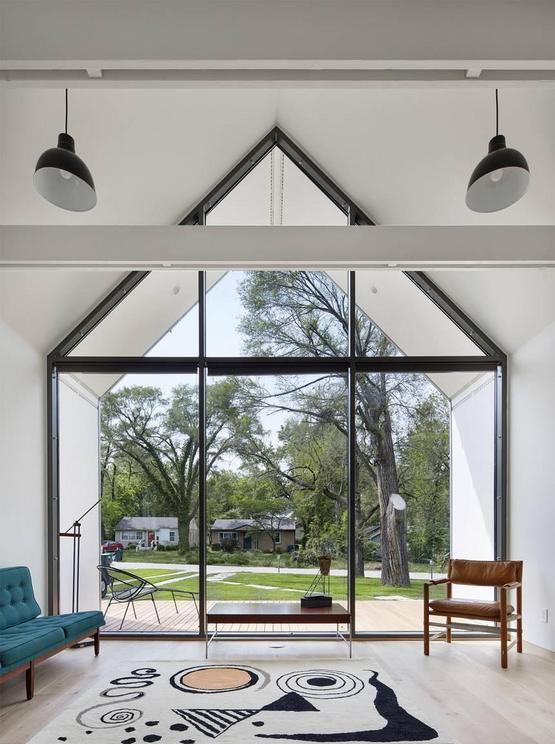
You can see a typical Lawrence house across the street through the big living room window. Too big a window to my taste, especially since Rockhill and the Studio 804 have built to the Passive House standard. But it does have a great view.
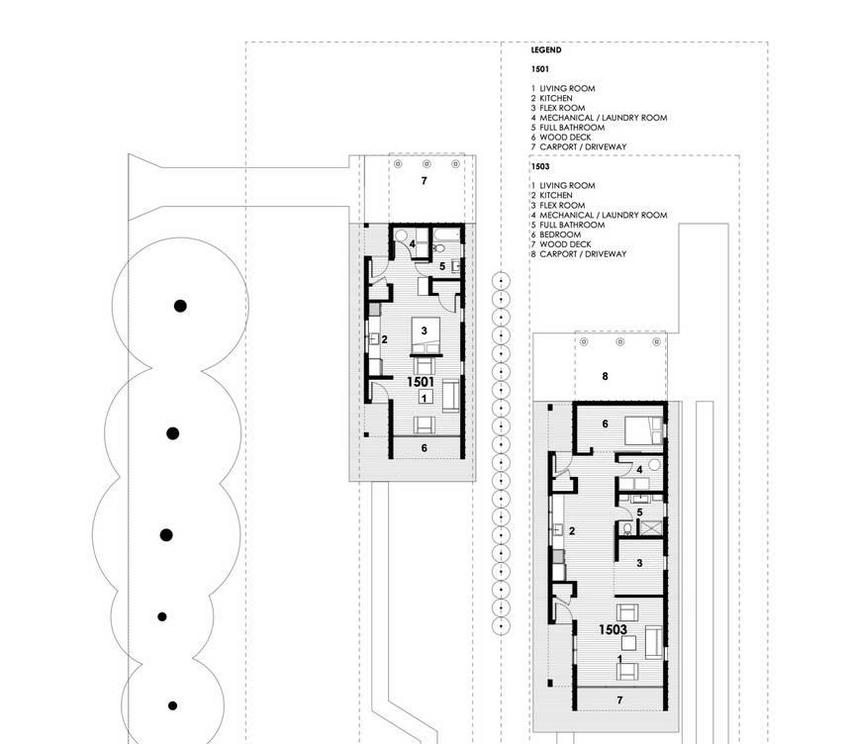
These houses are built and then sold, and are subject to the vagaries of the market; it will be interesting to see how something that isn't the usual three bed/ two bath house will do. The unit 1501 worries me, with its flex room. Is the bed in the kitchen?
 Kitchen in unit 1501, no bed in sight
Kitchen in unit 1501, no bed in sight
A decade ago, shortly after the Great Recession, Rockhill and the Studio ran into trouble selling a pretty wonderful house. The story got picked up by USA Today, and commenters complained: "Why can't the treehugger crowd get it? Give us something that looks decent, at least costs the same, and actually works and the rest of us will get on board. Until then, stopped forcing 'green' on the rest of us!"
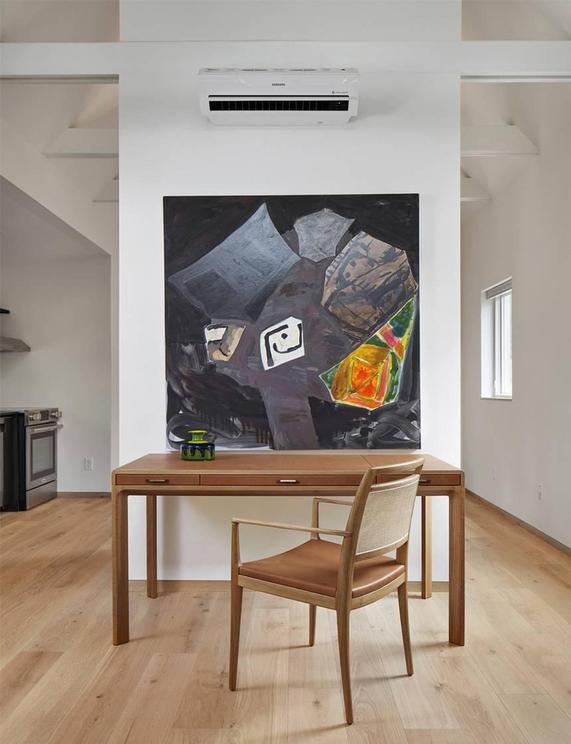
I wrote a paragraph then that still applies, about how Americans just aren't willing to pay more for quality or design:
The fact is, you can't build R-50 walls for the same price as R-20. You can't put in a Passivhaus-sized heat recovery ventilator for the price of a bathroom exhaust fan. You can't get rid of vinyl siding and windows and formaldehyde and asphalt shingles without paying more. And you shouldn't. People deserve healthy, strong houses that will last a long time and tread lightly on the environment.
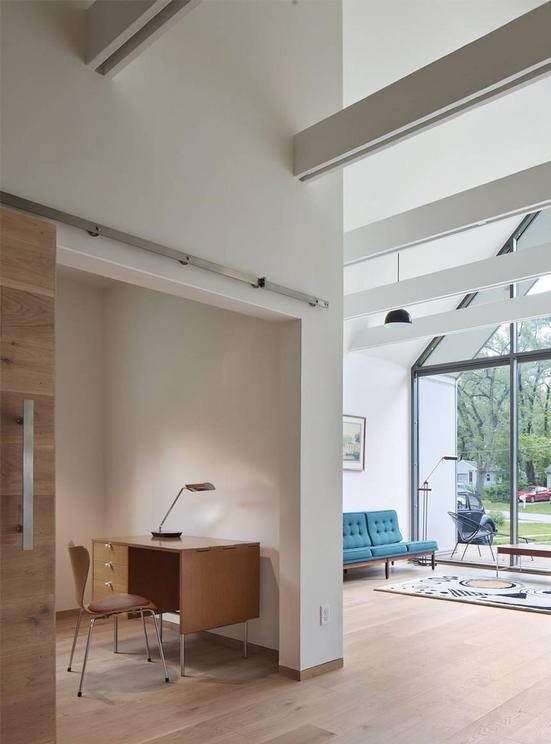
I was pretty bitter at the time, and added a few of my favourite quotes:
H.L. Mencken wrote that "Nobody ever went broke underestimating the taste of the American public", but a lot of people have by overestimating it, including myself.
Helen Rupell Shell writes in Cheap that "the economics of 'cheap' cramps innovation, contributes to the decline of once flourishing industries, and threatens our proud heritage of craftsmanship."
But when it comes to paying for anything, Oscar Wilde would have said that North Americans "know the price of everything and the value of nothing."
Not much has changed in the housing industry, and ten years later, Rockhill is still at it, still building the kind of houses that Lawrence and the rest of the country needs. And still inspiring his students and the TreeHugger crowd everywhere.
